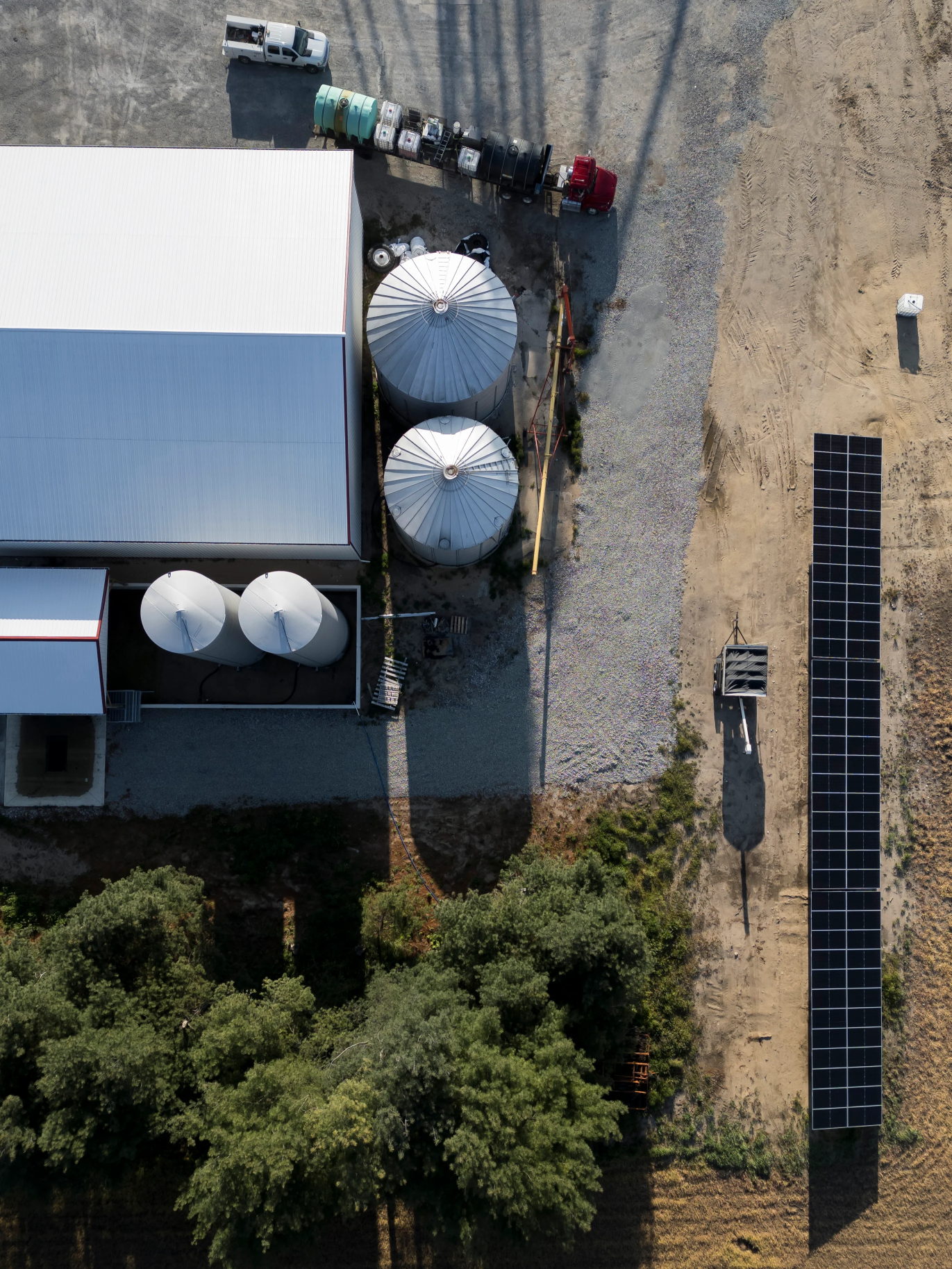Clauson Farms – Indiana
- Rural Energy for America Program,
- Stories

Rural Indiana Farmer Spurs Savings Through Solar
A REAP grant funded by the Inflation Reduction Act supported solar arrays and triggered tax incentives.
At Clauson Farms in north-central Indiana, farming is all but branded in the family DNA. It’s a generational tradition that, for Jeff Bauman, dates back to his grandfather. And with this farming family in particular, they’ve found a way to carry a familial heritage forward while incorporating newer technology that allows their operation to run with greater efficiency and reduce costs.
Most recently, that meant the installation of solar arrays. What started with a single array has grown to four on a rural Rochester farm owned and operated by a set of brothers-in-law and their two sons.
“We saw how the first one worked out and it just makes sense financially,” Bauman said of the farm’s journey with solar arrays. “They don’t take up a lot of space or cause trouble. Typically we can utilize parts of our farm that weren’t productive anyways. So we’re not taking good productive parts of the farm out of service just to have solar panels.”
When New Holland Rochester, Bauman’s local farm equipment supplier, became a dealer for solar arrays, that really helped spur the family’s interest in giving it a try. Dealing with someone they’ve come to trust for years, and learning about federal grant money that was available to help facilitate the purchase of the arrays, helped in the decision-making process.
When presented with a financial assessment for the purchase, Bauman said they realized they would make their money back on the investment within two years. They would do that by applying for a Rural Energy for America Program (REAP) grant, which totaled about $30,000, and couple that funding with tax incentives earmarked for renewable energy investments.
The REAP program recently received more than $2 billion in funding as part of the Inflation Reduction Act (IRA), passed by the 117th Congress and signed by President Joe Biden.
“The grant money made it affordable,” Bauman said, estimating that the farm will save more than $5,000 on electricity costs alone on its most recent array, in its first year of operation. “We sell 100% of the energy we make and buy back what we use.”
The newest solar installation at Clauson Farms, which is a three-array system, provides almost all of the electricity needed for the grain operation there. The farm grows corn and soybeans. Most of the corn raised goes into ethanol production and they sell the soybeans to a company using them to produce a healthier alternative to canola oil.

Other solar arrays on the farm provide electricity for irrigation systems and water wells, as well as their farm shop. And they’ve caught the attention of other farmers in town. After all, in Rochester, just about everybody knows everybody, Bauman said.
“We considered the grant money, the tax incentives, the energy savings, and the depreciation, and they all played a role in the decision to purchase more solar,” Bauman explained, saying the grant writing experience is tedious but doable. “It’s not hard work but it’s not fun. It’s monotonous, and it’s pretty detailed. It’s something anyone can do, it’s not rocket science. It’s just a matter of digging up information.”
Looking ahead, Bauman said Clauson Farms may have room for additional solar installations in the coming years. The cost savings and the tax incentives just seem to make sense, from a financial perspective, for the farm.
“We are farmers and we live off our land that way, and not for solar panels,” he said. “But to offset costs, I think solar is something that will continue to happen in the future.”
The Inflation Reduction Act (IRA), passed by the 117th Congress and signed by President Joe Biden, is a piece of federal legislation that aims to reduce inflation by lowering the cost of prescription medications, investing in domestic energy production, and promoting clean energy, among other objectives.
Get the latest on solar straight to your inbox.
Fight for your solar rights.
Everyone has the right to go solar. Spread the sunshine nationwide and in your local community by taking action, joining events, and more.